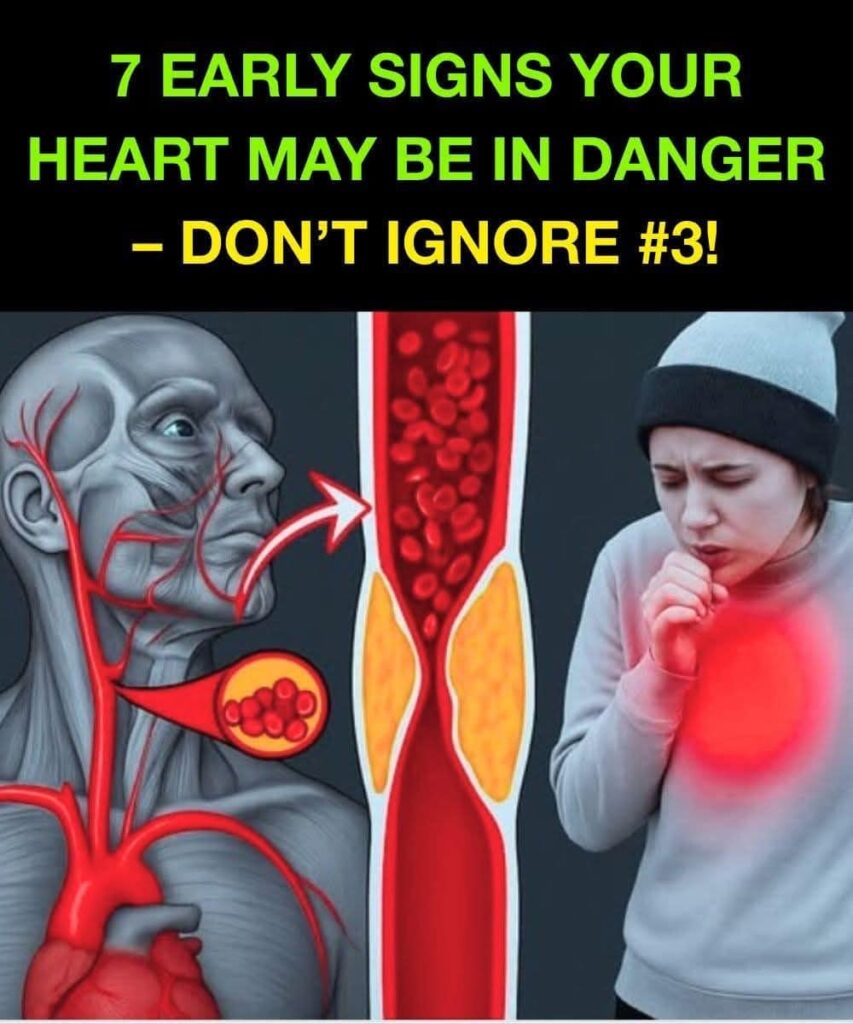
Your Heart Whispers Before It Shouts: 7 Early Signs It May Be in Trouble
Your heart works around the clock to keep you alive — but when it’s in danger, it often speaks in subtle signs long before a crisis strikes. Heart disease remains one of the leading causes of death worldwide, and tragically, many people overlook the early warnings.
Recognizing these symptoms early could save your life.
1. Chest Discomfort
The most well-known sign of heart trouble. It may feel like pressure, squeezing, fullness, or pain in the chest — sometimes described as “an elephant sitting on your chest.” It may come and go or persist. Whether it happens at rest or during activity, don’t ignore it — seek help immediately.
2. Shortness of Breath
Struggling to breathe after minimal effort — or even while lying down — may signal your heart isn’t pumping effectively. This can cause fluid buildup in the lungs, making it harder to breathe. Don’t dismiss breathlessness as just being “out of shape.”
3. Unusual Fatigue
Feeling drained even after a good night’s sleep? If routine tasks suddenly leave you exhausted, your heart might not be supplying enough oxygen-rich blood. Persistent fatigue, especially in women, is a warning sign too often missed.
4. Swollen Legs, Ankles, or Feet
When the heart weakens, blood can back up in the veins, causing fluid retention. This swelling — called edema — often starts in the lower limbs. If your shoes or socks feel tighter than usual, take notice.
5. Irregular Heartbeat
A racing, fluttering, or irregular heartbeat (arrhythmia) can be more than just stress or caffeine. Frequent irregularities may signal problems with the heart’s electrical system and raise your risk of stroke or heart failure.
6. Pain in the Neck, Jaw, or Back
Heart-related pain isn’t always in the chest. Particularly in women, it may appear in the neck, jaw, shoulders, or back. If the pain is sudden, unexplained, or linked to exertion, it could be your heart sending an SOS.
7. Cold Sweats and Dizziness
Unexpected cold sweats, lightheadedness, or feeling faint may seem like anxiety, but can also mean your brain isn’t getting enough blood. When paired with chest discomfort or shortness of breath, this could signal a heart attack.
What to Do if You Notice These Signs
Don’t wait or self-diagnose. If you experience any combination of these symptoms — especially chest pain with dizziness, nausea, or breathlessness — call emergency services immediately. Quick action can prevent serious damage or even save your life.
Listen to Your Body
Your heart often speaks in whispers before it screams. Paying attention to the quiet warnings, getting regular checkups, and acting fast when something feels off can make all the difference. Protect your heart — it’s working hard for you.


